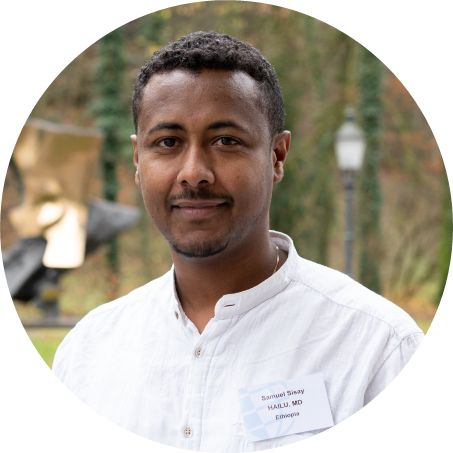Imaging for children is a special skill, and as medical imaging capabilities continue to improve, the Children’s Hospital of Philadelphia remains committed to using these powerful technologies safely and reducing patients’ exposure to radiation, especially for children whose conditions require repeated studies over the years.
From December 4-10, 2022, 28 fellows from 25 different countries gathered at Schloss Arenberg in Salzburg, Austria to hear the latest updates in the field of pediatric radiology. Dr. Karuna Shekdar, Assistant Professor of Clinical Radiology at the Perelman School of Medicine and Director of Neuroradiology Fellowship at the Children’s Hospital of Philadelphia, led the course for the second time this year. She was supported by co-course director Dr. Erich Sorantin, University Professor in the Department of Radiology at the Medical University of Graz, and a team of young, top-notch radiologists from the USA and Austria, consisting of Dr. Summer L. Kaplan, Assistant Professor of Clinical Radiology at the Perelman School of Medicine, University of Pennsylvania, Children’s Hospital of Philadelphia, Dr. Asef Khwaja, Clinical Associate Professor of Radiology at the Children’s Hospital of Philadelphia, Dr. Abhay Srinivasan, Radiologist at the Department of Radiology at the Children’s Hospital of Philadelphia, and Dr. Sebastian Tschauner, Consultant Pediatric Radiologist in the Division of Pediatric Radiology, Department of Radiology at the Medical University of Graz.
Together, the faculty members guided fellows into better being able to understand and identify the imaging features of various common emergencies affecting neonates and older children, to better understand and identify the salient imaging findings in accidental and non-accidental trauma in brain, axial, and appendicular skeletal trauma, as well as to recognize the imaging features of common vascular anomalies and pediatric tumors of the brain, liver, kidneys, adrenals (neuroblastoma), and bone.
On Wednesday fellows and faculty used the free afternoon to explore the festive city center and its surrounding Christmas markets, while others took an adventurous tour through the salt mines in Hallein.
Tuesday and Thursday were, as most weeks, reserved for fellow’s case presentations. Every fellow prepared a presentation about a case they experienced during their own clinical practice and received feedback from faculty and fellows. Four cases were chosen by the faculty to be published in the OMI case library.
After intense days of learning and networking, the seminar ended with a farewell reception and graduation dinner on Friday, where fellows were awarded their certificates of attendance and could enjoy the last evening together with delicious food and drinks.

Samuel Sisay Hailu, MD
OMI fellow from Ethiopia
Dr. Tschauner briefed us on artificial intelligence, which is a new and exciting aspect of our field. We had a fruitful conversation, which was very helpful since I am focusing on AI in Ethiopia.











